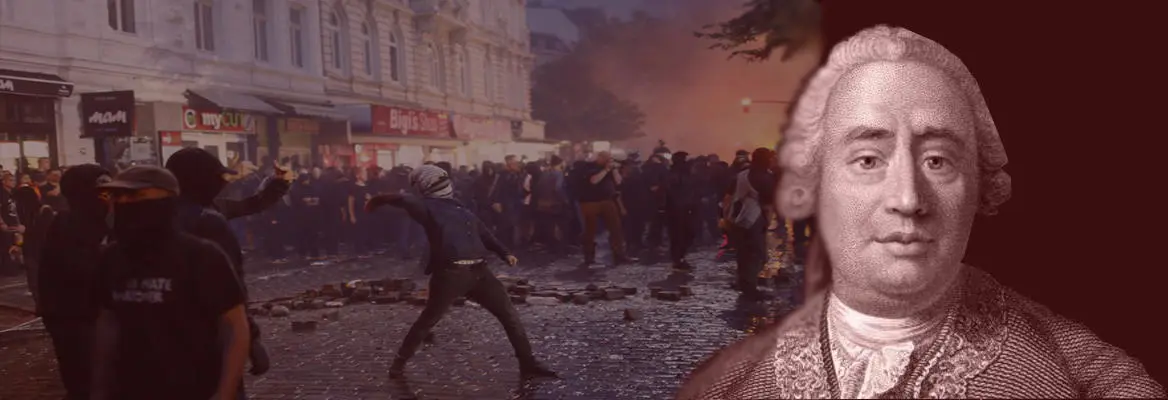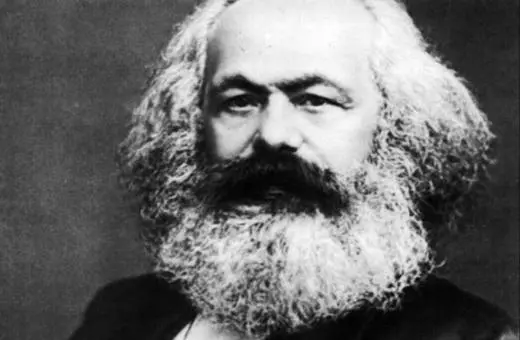“Reason is, and ought only to be, the slave of the passions, and can never pretend to any other office than to serve and obey them,” Scottish philosopher David Hume famously said in his Treatise of Human Nature. He also offered a theory about the way that emotions spread among people, which helps explain the divisiveness of our current politics.
How Actions are Produced
According to Hume, all our intentional actions are the immediate product of passions -- or emotions, feelings, or desires, as we would say today. He does not think that any other kind of mental state could, on its own, bring about an intentional action, except if it first generates a passion. Not all the passions can become motives for action, however. Beyond instincts such as hunger and lust, only desire and aversion, hope and fear, joy and grief, or combinations of these, generate action. How? A feeling of pleasure or pain, whether physical or psychological, or a belief that pleasure or pain may or will come from something, occurs in the mind and causes the passion that brings about action.
Hume famously attacks most moral philosophers, ancient and modern, for claiming that there is conflict between our passions and our reason. He claims to prove that “reason alone can never be a motive to any action of the will,” and that reason, all by itself, “can never oppose passion in the direction of the will.” Hume’s view is not, of course, that reason plays no role in getting us to act; he grants that reason provides information, in particular about means to our ends, which makes a difference to what we do. But reason alone, he thinks, cannot move us to act; the impulse must come from emotion or desire or aversion – from passion. Reason can only pursue and obtain knowledge of logical and mathematical relations and of cause and effect; passion then uses this information to chase its goals effectively.
Hume allows that, speaking imprecisely, we often say that we are being unreasonable in wanting or feeling something because the passion arises in response to a mistaken judgment or opinion. I want to eat a certain fruit, for example, because I believe it will be delicious, but in fact it’s bitter, and when I discover this, I may carelessly say that my desire for the fruit was unreasonable. But strictly speaking, even here it’s not the desire but the judgment that’s unreasonable. No passion goes against reason, not even having “a more ardent affection for… my own acknowledg'd lesser good [than] my greater.” It’s imprudent to want what is worse for me, according to Hume, but it’s not against reason.
___
"Reason alone cannot move us to act; the impulse must come from emotion or desire or aversion – from passion"
___
It follows from these views that reason can’t evaluate the goals people set for themselves. Only our passions can select our goals, and since reason can’t evaluate our passions, it can’t judge our goals to be irrational. All it can do is discover which means to our chosen ends are most likely to be effective.



















Join the conversation